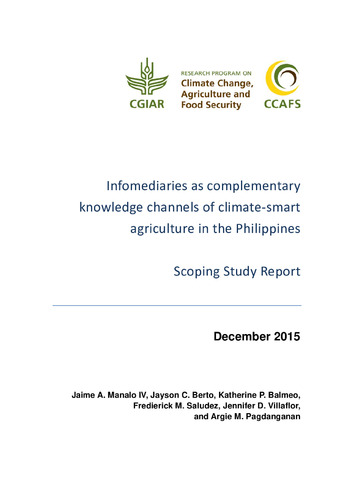Infomediaries as complementary knowledge channels of climate-smart agriculture in the Philippines
Abstract
Four key findings can be drawn from this scoping study: (1) all sites are situated in agricultural communities where rice is widely grown along with other crops; (2) almost all (99%) of the students surveyed are aware of climate change and its possible impacts on rice; (3) schools are rated as primary sources of information on CSA (Sig 2-tailed t=0.05) with the teachers as champions; and (4) instances of adoption of CSA practices have been documented.
As regards the first finding, this means that this project, being focused on CSA, is rightly located. This is an important point as location specificity and relevance are among the key considerations for climate change adaptation initiatives to be successful. The second point takes this initiative to the next level as it informs that the direction must shift to how to translate awareness to tangible actions as stand-alone climate change awareness campaigns are inadequate to move people to action. The key, therefore, is to reflect on how platforms for youth engagement to serve as infomediaries on CSA can be optimized to yield the best results. The third finding establishes that efforts to engage the schools, with the teachers as champions, are leading to the right direction. Hence, the discourse should move to how the teachers can best be capacitated so they can address the “adaptation deficit” on CSA. The fourth finding is among the raison d ‘etre of this initiative. Albeit on a small scale, instances of adoption of some CSA practices have taken place. Hence, this initiative must now focus on investigating, which prompted the adoption so this can be massively replicated in other sites where these technologies seem fit.

